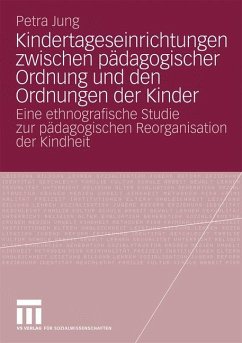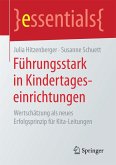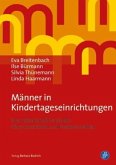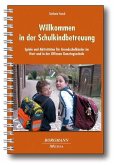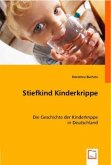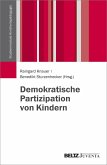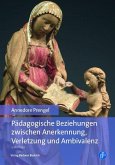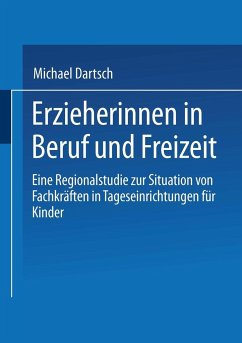Eine ethnografische Studie zur pädagogischen Reorganisation der Kindheit
By exploring indigenous people's knowledge and use of sea ice, the SIKU project has demonstrated the power of multiple perspectives and introduced a new field of interdisciplinary research, the study of social (socio-cultural) aspects of the natural world, or what we call the social life of sea ice. It incorporates local terminologies and classifications, place names, personal stories, teachings, safety rules, historic narratives, and explanations of the empirical and spiritual connections that people create with the natural world. In opening the social life of sea ice and the value of indigenous perspectives we make a novel contribution to IPY, to science, and to the public.
Die bildungspolitische Debatte setzt auf die Qualität von Kindertageseinrichtungen. Diese Studie greift das - mit Bernfeld gesprochen - instituetische Problem auf, wie der Kindergarten als Organisation erzieht. Sie zielt daher auf das Geschehen. Im Zuge des ethnografischen Projektes, das eine Organisationsreform von Kindergärten begleitete, wurde dies in den Ordnungen aufgesucht, welche die Akteure in der Strukturierung ihrer Begegnungen hervorbringen. In welchem Verhältnis stehen etwa die pädagogische Ordnung des Kindergartens und die Ordnungen der Kinder zueinander? Die erfahrungswissenschaftliche Frage, wie der Kindergarten erzieht, wird also gleichsam aus einer forschenden Teilnehmerperspektive aufgegriffen und in den Praktiken und Routinen der Akteure als Logik des pädagogischen Feldes untersucht. Die Befunde zeigen, wie der Wandel generationaler Ordnungen im Zuge von Verbesserungspraktiken von Kindern und Erwachsenen perspektivisch hervorgebracht wird.
By exploring indigenous people's knowledge and use of sea ice, the SIKU project has demonstrated the power of multiple perspectives and introduced a new field of interdisciplinary research, the study of social (socio-cultural) aspects of the natural world, or what we call the social life of sea ice. It incorporates local terminologies and classifications, place names, personal stories, teachings, safety rules, historic narratives, and explanations of the empirical and spiritual connections that people create with the natural world. In opening the social life of sea ice and the value of indigenous perspectives we make a novel contribution to IPY, to science, and to the public.
Die bildungspolitische Debatte setzt auf die Qualität von Kindertageseinrichtungen. Diese Studie greift das - mit Bernfeld gesprochen - instituetische Problem auf, wie der Kindergarten als Organisation erzieht. Sie zielt daher auf das Geschehen. Im Zuge des ethnografischen Projektes, das eine Organisationsreform von Kindergärten begleitete, wurde dies in den Ordnungen aufgesucht, welche die Akteure in der Strukturierung ihrer Begegnungen hervorbringen. In welchem Verhältnis stehen etwa die pädagogische Ordnung des Kindergartens und die Ordnungen der Kinder zueinander? Die erfahrungswissenschaftliche Frage, wie der Kindergarten erzieht, wird also gleichsam aus einer forschenden Teilnehmerperspektive aufgegriffen und in den Praktiken und Routinen der Akteure als Logik des pädagogischen Feldes untersucht. Die Befunde zeigen, wie der Wandel generationaler Ordnungen im Zuge von Verbesserungspraktiken von Kindern und Erwachsenen perspektivisch hervorgebracht wird.
"Die Arbeit von Petra Jung [die Autorin] erstellt einen aufschlussreichen und klugen analytischen Blick auf den Kindergarten, als einem Ort der kokonstruktiven Erziehung von Kindern, deren eigene Beteiligung jenseits der professionellen Intention sich entwickelt. Sie bietet eine Vielfalt von präzisen Beobachtungen des professionellen Geschehens, die in jedem Fall hilfreich und weiterführend sind." www.socialnet.de, 20.12.2010

